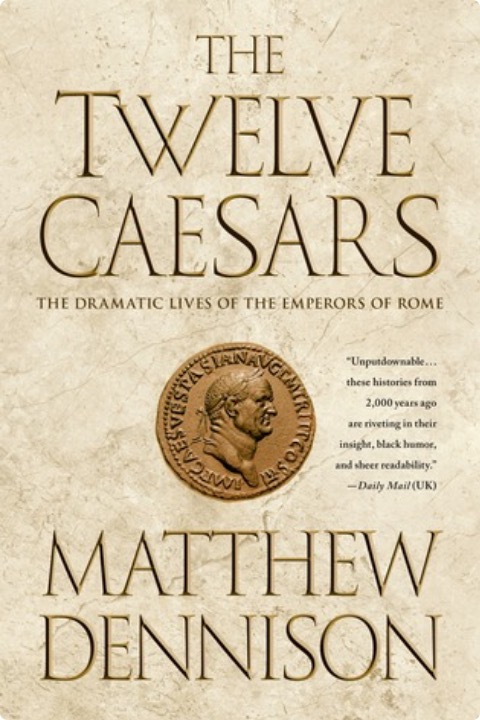I have this fantasy in which I’m the Emperor Nero. I’m relaxing in my toga, and there are these slave girls dancing for me, and one of them has the most incredible … Like all the best fantasies, it’s a little unrealistic, let us say, but I didn’t know how unrealistic until I read this magnificent book by Matthew Dennison. For Nero’s life, as absolute ruler of the known world, was hell, haunted by twitching doubts and gibbering fears.
He was bisexual, to begin with. That was OK in ancient Rome, but when it came to sleeping with men he received rather than gave, and that was definitely uncool. (During the act itself, the sources say, Nero would ‘imitate the cries and laments of a maiden being deflowered’.) Paranoid, he killed his mother at the request of his wife. Then, a few years later, he killed that same wife, pregnant at the time, by kicking her repeatedly in the stomach. Why? She nagged him for returning late from the races.
With absolute power comes absolute permissiveness. Ordinary vices pall, and the tired hand reaches, with diminishing returns, for ever stranger fruit. Moving through the catalogue of their crimes, sexual and otherwise, one is continually astonished by the sheer inventiveness of the Caesars, their desperate originality.
Augustus (31 BC to AD 14) started out quietly. He used to ravish the wives of senators during dinner parties. One of them, we’re told, returned to the table with her ‘ears glowing’, which makes it sound like he knew what he was doing.
Mere adultery wasn’t enough for his successor. In misanthropic seclusion on the isle of Capri, Tiberius trained little boys to swim under him as he bathed, and nibble his genitals. Distinguished guests were encouraged to gorge on wine. Then — the Emperor’s personal innovation — their penises were bound so tightly they couldn’t pee. No woman could resist his sexual advances, because if she did, he had her legs broken, which made her more compliant.
Don’t get me started on Caligula. All right, Caligula (37-41). Probably insane, he went further than Augustus: on returning to the dinner table, he delivered a detailed assessment of his host’s wife’s sexual charms. The body of this incestuous fiend (he conducted a torrid affair with his sister Drusilla) was covered in revolting hair. Anyone who mentioned goats in his presence was executed.
Some of the anecdotes here are so extreme, they’re hilarious. Fancying himself a rock star, Nero (rumoured, incidentally, to have slept with the mother he later killed) went on a tour of Greece in AD 67, plucking his lyre and declaiming in his reedy voice. He was no artist, except in his sensitivity to criticism. Pregnant women didn’t dare leave during one of his interminable performances, but were forced to give birth in their seats. Certain members of the audience, we are told, resorted to feigning death, in the hope they might be carried away.
But how much of this ancient ‘history’ are we to believe? The stern Tacitus, writing at the time? The salacious Suetonius, a generation later? Pliny? Cassius Dio? Velleius Paterculus? All had agendas, some of them literary. The taste for violence and sexual depravity to be found in the Silver Age fiction of the era also typifies its non- fiction — but which affected which? Did historians look to the visceral epics of Lucan and the blood-splashed tragedies of Seneca before putting stylus to parchment? Were Lucan and Seneca themselves merely responding to a public taste for grand guignol, which was in turn inspired and encouraged by imperial peccadilloes? One of the many strengths of Dennison’s robust and gripping multi-biography of the first 12 Caesars (which is modelled on Suetonius’ original, but with rather less credence given to portents) is that he remains eternally sceptical of his sources. Not that this stops him giving us the juice.
The author’s prose style — epigrammatic, swift, and spiced with humour — is like Tacitus in translation. Which is meant as a compliment. His relish for his material shines infectiously through his sentences. Fantasies aside, it becomes clear that the role of emperor was one to be avoided. Historians have more fun, and are rarely assassinated.

